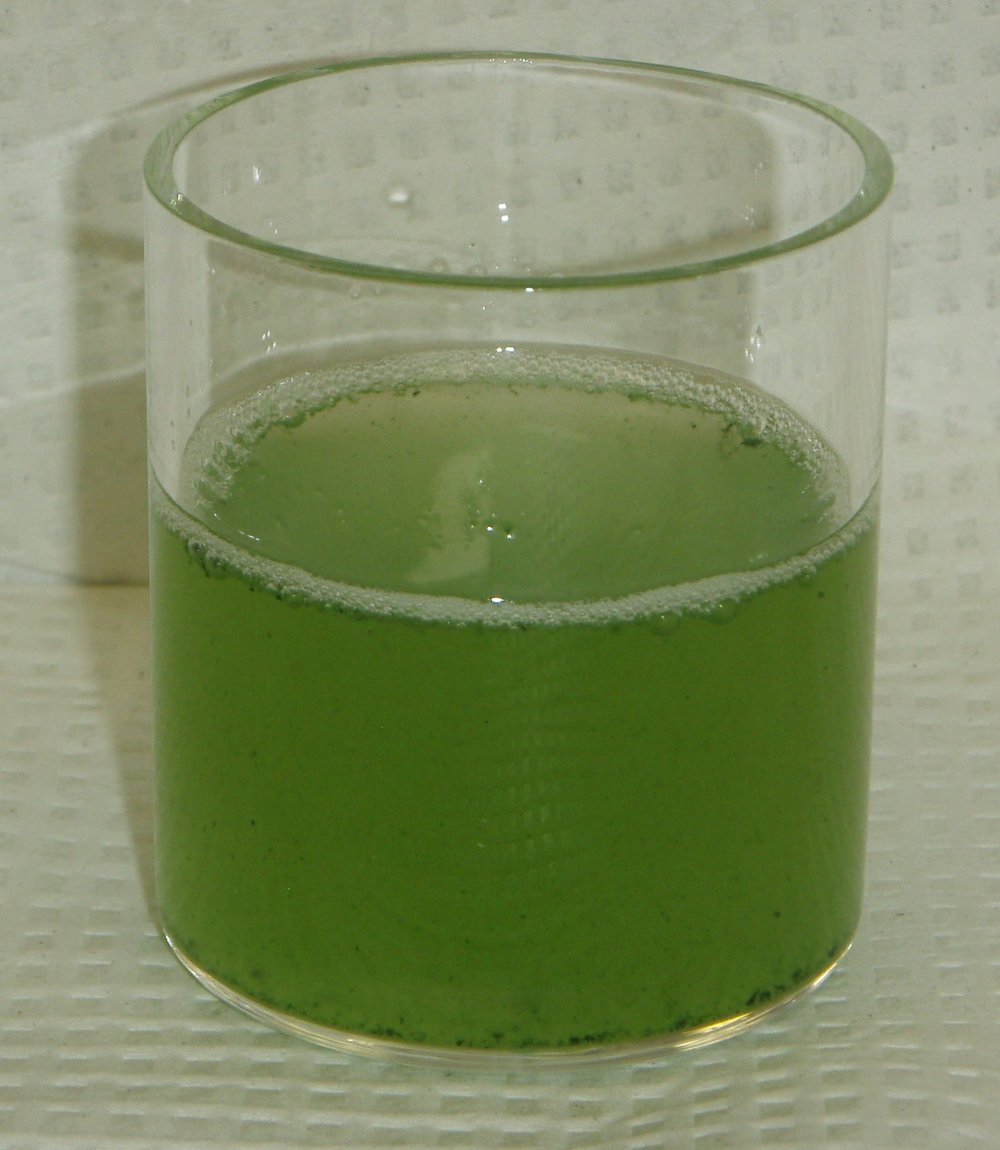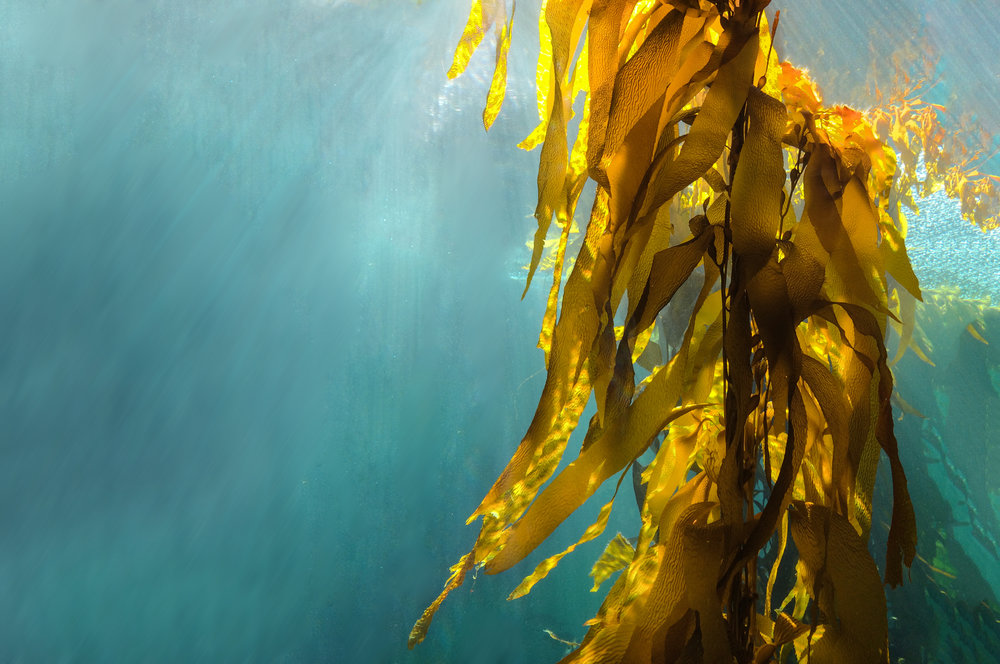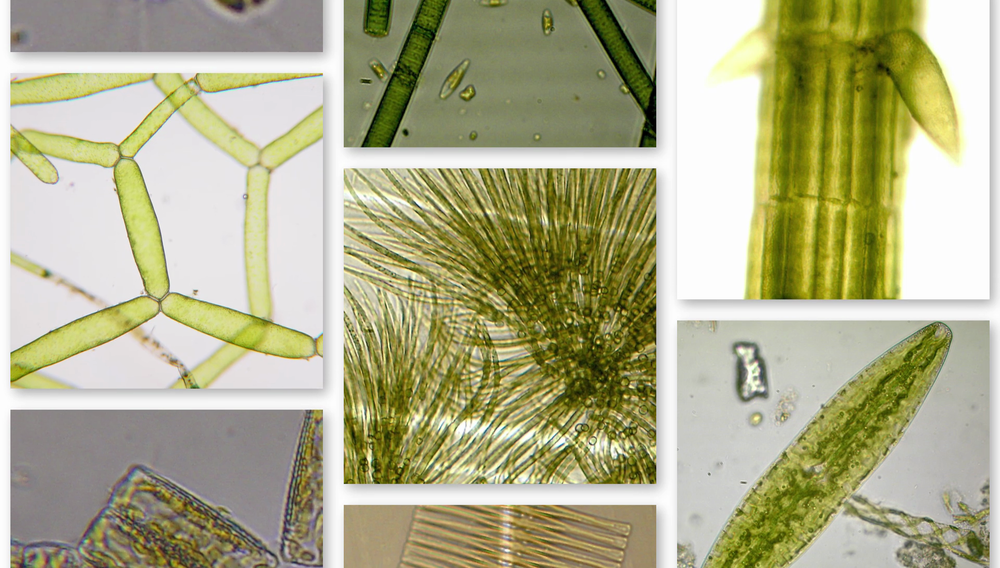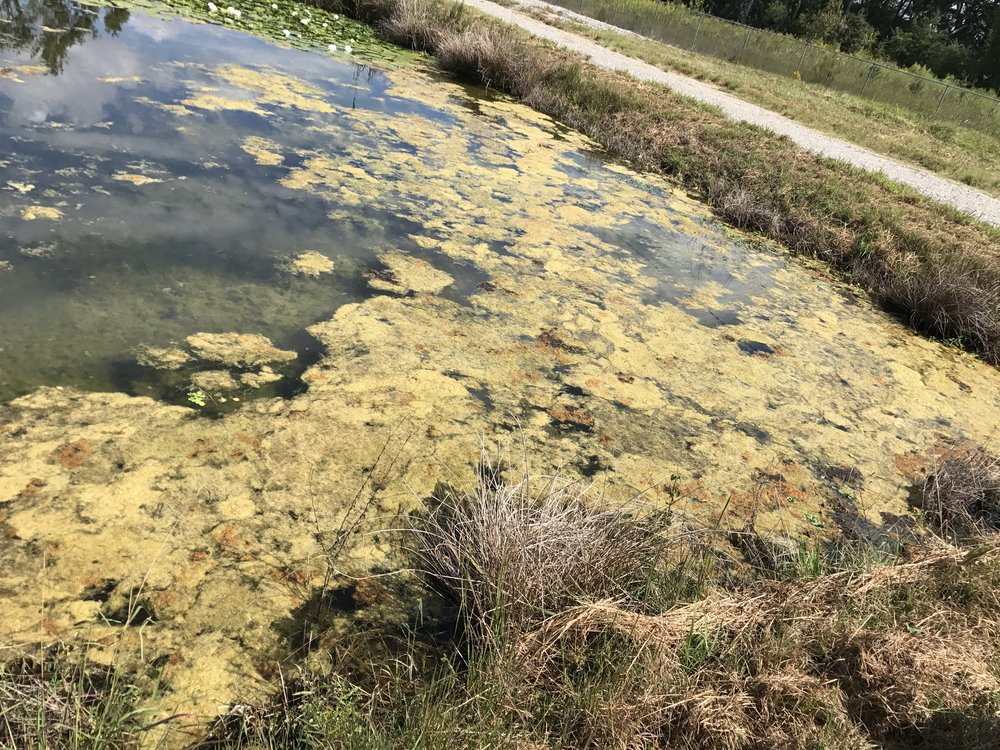Algae Corner: What are Algae?
Welcome to the Algae Corner with me, Dr. West Bishop!
In today's episode we're going to talk about what algae are, exactly. More specifically, how would we define them? How many types are there? Are they good, or bad?
A Diverse Group of Organisms
 Microscopic planktonic algae in a beaker
Microscopic planktonic algae in a beaker
 Large ocean kelp can span hundreds of feet underwater
Large ocean kelp can span hundreds of feet underwater
Algae span from single-celled planktonic small organisms that you have to use a microscope to see, to large ocean kelps that can be 300 feet long.
The definition of algae is quite a broad term. In general, it means organisms with no true roots, stems or leaves, and organisms that are mostly photoautotrophic. This means they acquire their energy from the sun through use of photosynthetic pigments.
Now, chlorophyll A is a common photosynthetic pigment. This appears green in color. It reflects green, and that's what we see a lot in leaves and in grass around. However, there are many other pigments that could appear red or brown or orange that other types of algae have. This can be diagnostic in identifying them.
Over 30,000 Species and Counting

There are over 30,000 species of described algae that are known to humans, but in theory, there could be hundreds of thousands or millions of yet undescribed types of algae. These span many different kingdoms of classification.
The green algae or the plant-like macro algae are grouped in the same kingdom as plants. They are grouped with land plants and aquatic macrophytes that have true roots, stems, and leaves, although the algae don't have them. However, there are also algae that are bacteria. For example, photosynthetic cyanobacteria are classified in the kingdom Bacteria.
Impacts on a System
 Many algae do not benefit aquatic ecosystems and can cause problems
Many algae do not benefit aquatic ecosystems and can cause problems
Some types of algae are good for a system. They're healthy; they move up the food chain. Invertebrates like to eat them, and then they can move up the food chain to help grow big bass, for example. These algae can also produce oxygen during the day, during sunlight, through the photosynthesis process.
However, there are some types of algae that are not good to have, and they're not easily eaten. For example, big, thick mats or scums that don't move up the food chain. Some algae can also produce toxins.
In Summary
Overall today, we looked at a broad definition of algae. We learned how many types there are, and whether they're good or bad. Stay tuned to future episodes to learn more!
To enable comments sign up for a Disqus account and enter your Disqus shortname in the Articulate node settings.
